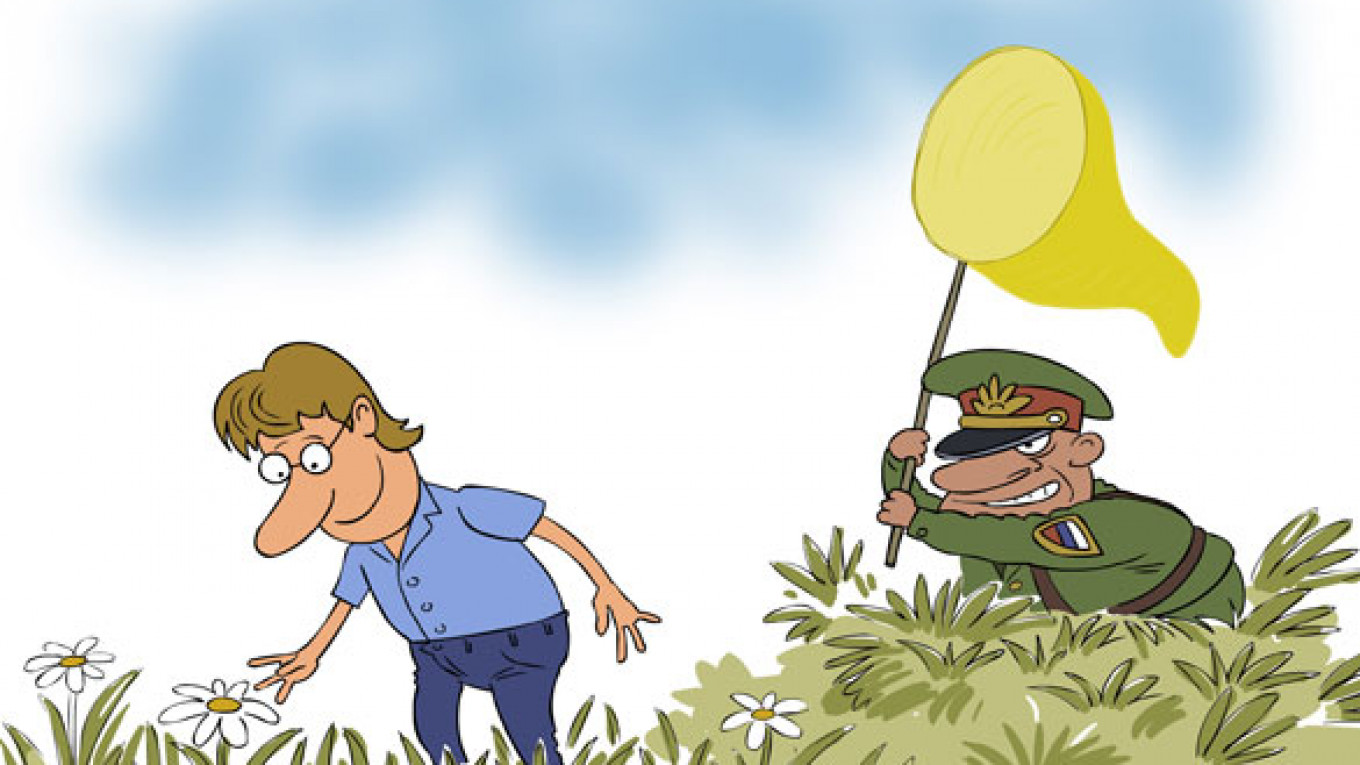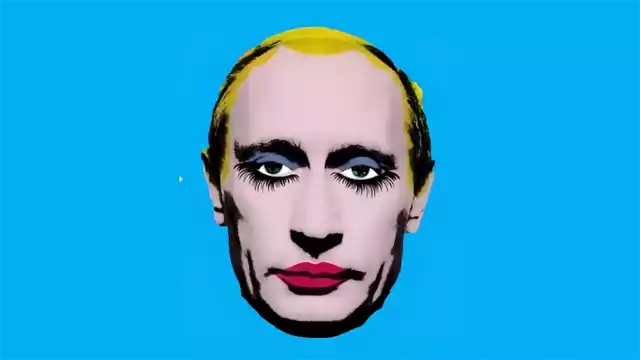I never cease to be amazed by Russians' uncanny ability to overlook the events that have the greatest impact on their future. For example, almost nobody took notice when President Vladimir Putin announced his intention to stop military conscription in his mid-December address to the Federal Assembly.
To be sure, Putin's message was slightly veiled when he proposed that college students complete their military service in parallel with their studies. In any event, Defense Minister Sergei Shoigu voiced strong support for the idea. Last week, Chief of General Staff Valery Gerasimov proposed using Russia's 72 existing military education facilities as training centers for a mobilization reserve. According to that plan, college students would occasionally attend classes in these centers over a period of two years. Before graduating, they would complete a three-month training course at one of the Defense Ministry's specialized military institutions. The scheme would enable all male college students to fulfill their obligatory military service without having to wear a uniform for more than a single three-month span in the summer.
Few took notice when President Vladimir Putin announced his intention to stop military conscription in his mid--December address to the Federal Assembly.
In effect, this would free all college students from active military service and should also put an end to the draft. With Russia's disastrous demographics, the top brass has had enormous difficulty recruiting 300,000 conscripts per year, 60,000 of whom are college students.
Yet, this latest initiative from Putin and Shoigu runs counter to previous policies. For example, what was the point for the recent law prohibiting draft evaders from holding public office? Why implement draconian measures for evasion if military service will essentially become voluntary? What's more, if the current initiative frees university students from active service, what was the point of the Defense Ministry's recent proposal to let college graduates choose between one year of military service as a conscript or two years as a professional soldier?
With this latest measure, the interests of Russian society jibe with the interests of part of the military bureaucracy. It is clear that Russia's draft system does not work. The great majority of young Russian men show absolutely no desire to join the ranks of the armed forces, despite impassioned calls by the military to serve. According to the Defense Ministry, about 200,000 young men successfully evade their draft notices each year. To his credit, Shoigu is the first Russian military chief to acknowledge the problem publicly. Without resorting to the typical patriotic hyperbole, he told Russia's male college students: "You will not have to hide in the swamps until you are 27 to avoid a call-up. We really want you to look at this as a good opportunity to pursue your studies in peace without having to run anywhere."
One year ago, Putin gave Russia's military brass an impossible task: to build a million-man army. With Russia's current demographics, the only way to fulfill that order is through bureaucratic manipulations. For example, the military brass can pad the ranks by listing all male college students on the roster, just as infants of the nobility were listed in the military ranks of Catherine I. And that is exactly what Putin and Shoigu intend to do with their initiative. In reality, though, it means that the armed forces would have 500,000 to 600,000 troops, and the rest would comprise a paper army.
The arrangement also undermines the main argument of those advocating a conscript army. Based on the experience of late 19th-century and 20th-century wars, they argue that state security depends on the ability to call up millions of reservists to respond to a serious military threat. That, they say, is why Russia needs the draft. During peacetime, the army essentially serves as a school for preparing a mobilization reserve. The new proposal would rely not on those who have completed compulsory military service but on the roughly 80,000 to 100,000 university students who would swell the ranks of the mobilization reserve every year.
It seems that the military contains two camps with opposing views on how to staff the army. The older faction insists on preserving the semblance of a mass mobilization army, thereby enabling them to retain their high military ranks and jobs for the next two or three years. The other faction, probably younger military officials, understand that Russia's deteriorating demographic situation could very soon prove disastrous for the draft, which is why they are offering schemes to gradually wean the army off the draft. At the same time, however, recalling former Defense Minister Anatoly Serdyukov's recent fall from grace and mindful to avoid any hint of an internal scandal, the top brass has no other choice but agree to initiatives that directly contradict each other.
Alexander Golts is deputy editor of the online newspaper Yezhednevny Zhurnal.
A Message from The Moscow Times:
Dear readers,
We are facing unprecedented challenges. Russia's Prosecutor General's Office has designated The Moscow Times as an "undesirable" organization, criminalizing our work and putting our staff at risk of prosecution. This follows our earlier unjust labeling as a "foreign agent."
These actions are direct attempts to silence independent journalism in Russia. The authorities claim our work "discredits the decisions of the Russian leadership." We see things differently: we strive to provide accurate, unbiased reporting on Russia.
We, the journalists of The Moscow Times, refuse to be silenced. But to continue our work, we need your help.
Your support, no matter how small, makes a world of difference. If you can, please support us monthly starting from just $2. It's quick to set up, and every contribution makes a significant impact.
By supporting The Moscow Times, you're defending open, independent journalism in the face of repression. Thank you for standing with us.
Remind me later.







